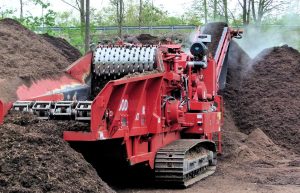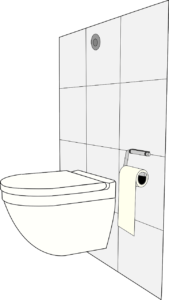In our daily lives, we’re often looking for simple yet impactful ways to contribute to a healthier environment, and composting is a fantastic method to achieve this. “What Are The Benefits Of Composting” explores the various positive effects composting has on our planet and communities. From enriching soil to reducing landfill waste and cutting down on greenhouse gas emissions, this practice offers numerous environmental advantages. By understanding these benefits, we can all play a part in fostering sustainability and nurturing our planet for future generations. So, let’s dive in and discover how this small act can make a big difference for us all. What are the benefits of composting? That’s a question many of us have asked as we look for ways to live more sustainably and reduce our environmental footprint. Composting is a wonderful practice that takes organic waste and converts it into nutrient-rich soil. But there’s so much more to composting than just a way to reduce waste. Let’s dive in and explore the benefits of composting together.

What is Composting?
Before we get into the benefits, let’s make sure we understand what composting is. Composting is the natural process of recycling organic matter, such as leaves, vegetable scraps, and coffee grounds, into valuable fertilizer that can enrich the soil and plants. This process involves the decomposition of organic material by microorganisms under controlled aerobic conditions.
The Basics of Composting
To start composting, we need a mixture of green and brown materials. Green materials include items rich in nitrogen, such as food scraps and grass clippings. Brown materials are rich in carbon and include items like dried leaves and wood chips.
The Role of Microorganisms
Microorganisms such as bacteria, fungi, and insects play a vital role in breaking down organic matter into compost. These tiny workers need oxygen, moisture, and the right mix of green and brown materials to thrive and efficiently turn waste into soil.
Environmental Benefits of Composting
Composting offers numerous environmental benefits that help make our planet healthier. Here are some of the key ways it helps:
Reducing Waste in Landfills
When we compost, we divert organic waste from landfills, where it would otherwise decompose anaerobically (without oxygen) and produce methane, a potent greenhouse gas. By composting, we reduce the amount of waste in landfills and decrease methane emissions, helping mitigate climate change.
Enriching Soil Health
Compost adds essential nutrients to the soil, improving its quality. Healthy soil can retain water better, reduce erosion, and support plant growth, leading to more robust and productive gardens and farms.
Promoting Biodiversity
Healthy soil is teeming with life. Compost supports diverse microorganisms and insects, creating a thriving ecosystem. This biodiversity can help plants resist diseases and pests, reducing the need for chemical fertilizers and pesticides.
Reducing Chemical Use
As compost naturally enriches the soil, we can reduce the need for synthetic fertilizers and pesticides. This reduction not only saves money but also prevents harmful chemicals from entering our environment, waterways, and food supply.
Economic Benefits of Composting
In addition to environmental gains, composting also has substantial economic benefits that can positively impact our wallets and communities.
Saving Money on Waste Disposal
By composting, we can significantly reduce the amount of trash we throw away, which in turn lowers disposal costs. Many municipalities charge by the volume of waste collected, so less trash means lower bills.
Cutting Down on Gardening Costs
Instead of buying expensive fertilizers and soil conditioners, we can use our compost to improve our gardens and landscapes. Compost provides essential nutrients at no additional cost, making it both a frugal and effective gardening solution.
Creating Job Opportunities
The composting industry itself can create jobs in various sectors, from waste collection and processing to retail and landscaping services. As more communities adopt composting practices, more job opportunities in these areas can arise.
Supporting Local Economies
Compost products can be sold locally, supporting small businesses and farmers. Buying locally produced compost rather than imported chemical fertilizers keeps money within the community and promotes sustainable agricultural practices.
Health Benefits of Composting
Composting doesn’t just benefit the environment and our wallets; it can also have significant positive effects on our health.
Reducing Exposure to Harmful Chemicals
By reducing the reliance on chemical fertilizers and pesticides, we limit our exposure to potentially harmful substances. Healthier soil means healthier plants, which translates to healthier food for us.
Producing Healthier Food
When we use compost in our gardens, we create a more nutritious growing environment for our plants. Fruits, vegetables, and herbs grown in compost-enriched soil tend to be healthier and more nutrient-dense.
Improving Air Quality
Composting organic waste, rather than allowing it to decompose in landfills, reduces methane production and other pollutants. Additionally, healthy compost-amended soil can act as a carbon sink, absorbing CO2 and helping to clean the air.
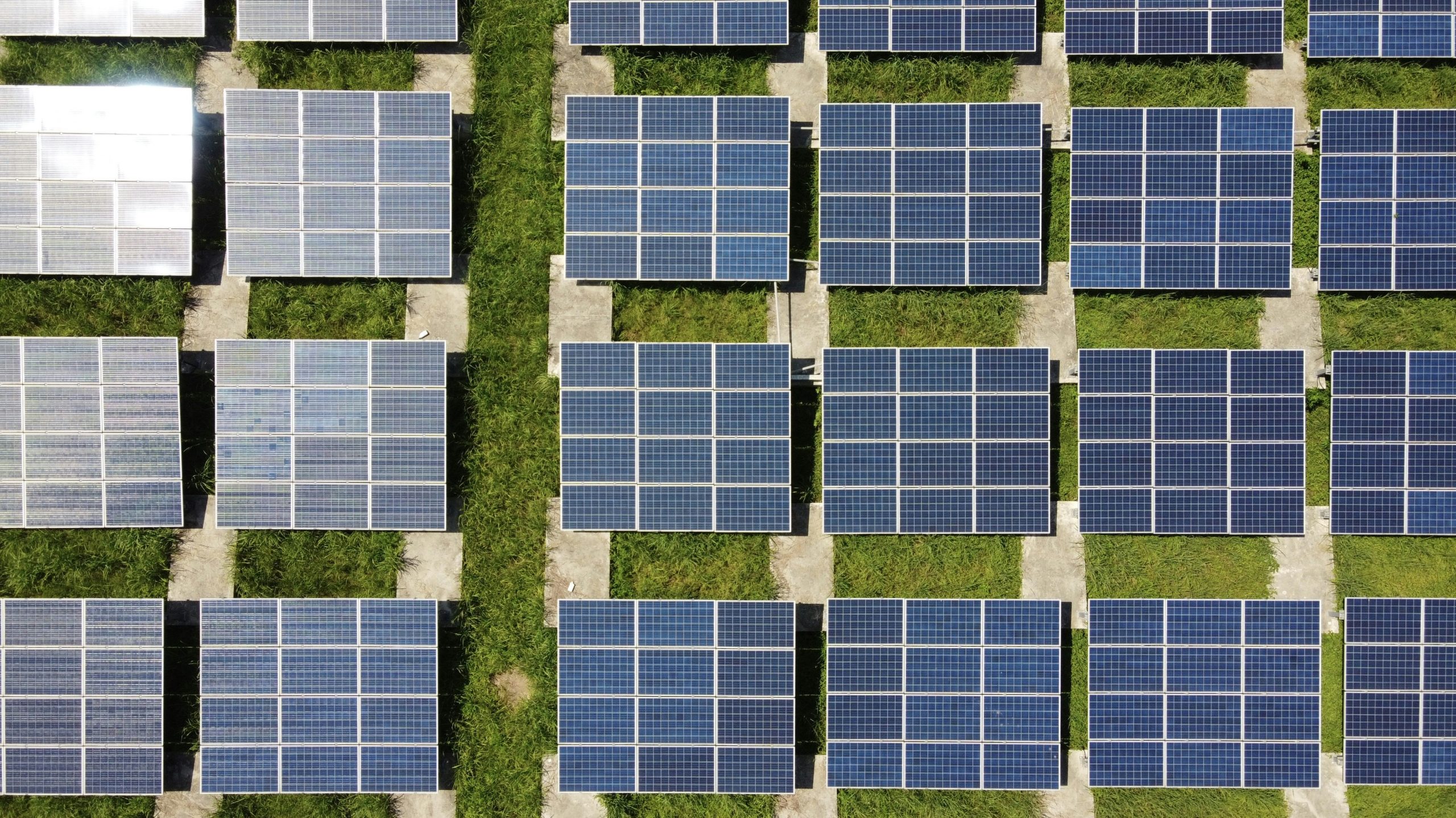
Social Benefits of Composting
Composting can also foster community relationships and educational opportunities, making it a socially enriching practice.
Building Community
Community composting initiatives can bring people together, fostering a sense of pride and cooperation. Whether through communal garden projects or local compost drop-off programs, these efforts can strengthen neighborhood bonds.
Educational Opportunities
Composting provides a hands-on way to learn about sustainability, biology, and environmental science. Schools, community centers, and families can use composting as an educational tool to teach about the importance of recycling, waste reduction, and sustainable living.
Encouraging Sustainable Practices
When we adopt composting, we often become more mindful of our overall consumption and waste habits. This mindfulness can lead to more sustainable living practices across various aspects of our lives, including water and energy conservation, and responsible consumerism.
Practical Benefits of Composting
Beyond the larger-scale environmental, economic, health, and social benefits, composting offers plenty of practical advantages that can make our day-to-day lives easier and more enjoyable.
Enhancing Garden Soil
Compost improves soil structure, drainage, and nutrient content, making it easier to work with and more productive. Our gardens will benefit from healthier, stronger plants and more vibrant blooms.
Reducing Garden Pests
Rich compost supports a healthy soil ecosystem, which can naturally deter pests and diseases. By fostering a balanced environment, we can reduce the need for artificial pest control methods.
Lowering Waste Odors
By composting food scraps and yard waste, we minimize the volume of waste in our garbage bins, which can help reduce unpleasant odors. This makes for a more pleasant living environment, especially in urban areas or during warmer months.
Conserving Water
Compost helps soil retain moisture, reducing the need for frequent watering. This can save both water and time, making our gardening routines more efficient and environmentally friendly.
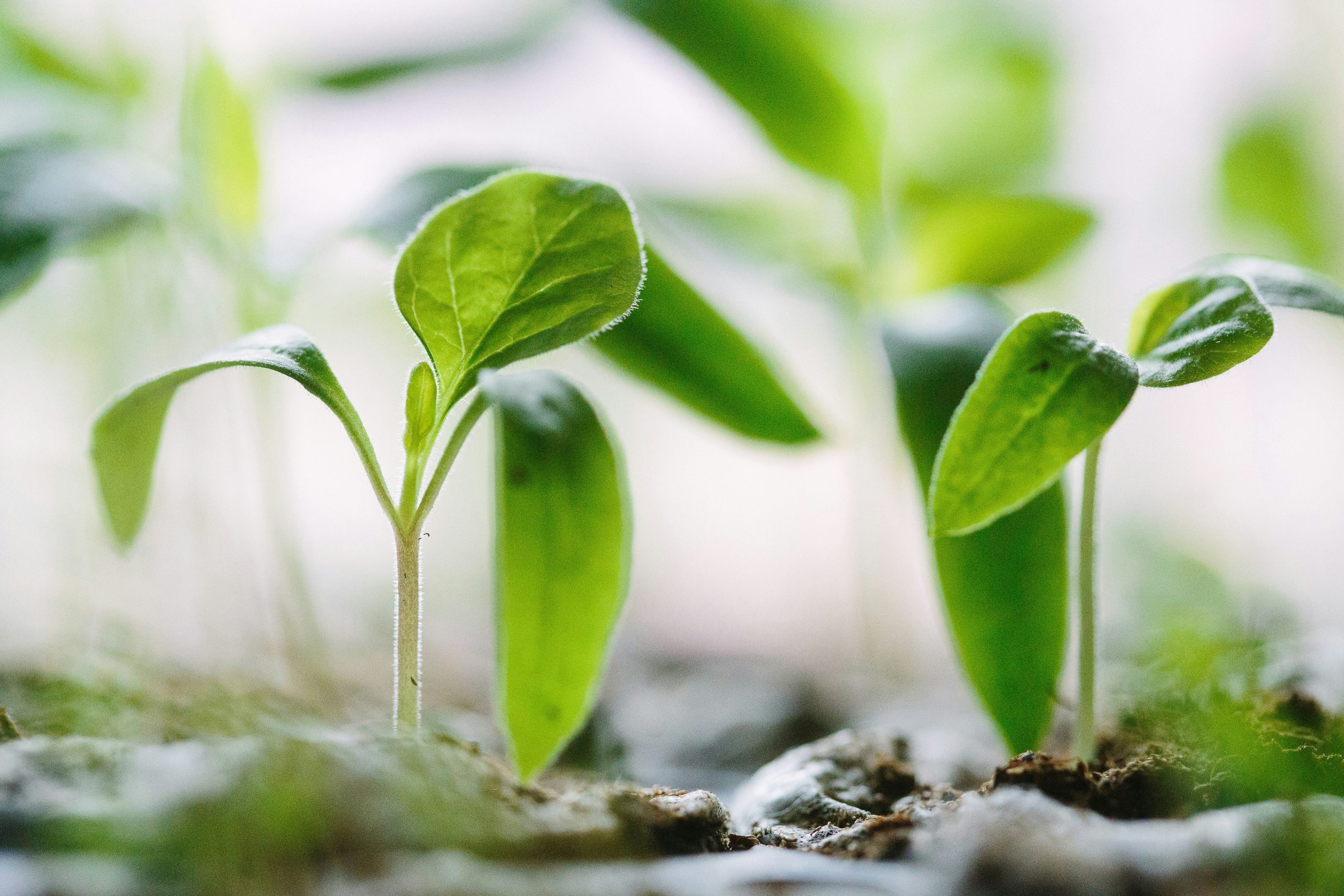
Steps to Start Composting
Now that we understand the multitude of benefits composting offers, let’s look at how we can get started with composting ourselves.
Choosing a Composting Method
There are several methods of composting, each with its own advantages. Depending on our space, time, and resources, we can choose the best method for us.
| Method | Description | Ideal For |
|---|---|---|
| Backyard Composting | Using a compost bin or pile in an outdoor space | Homeowners with garden space |
| Vermicomposting | Using worms to compost food scraps in a bin | Apartment dwellers, small spaces |
| Tumbler Composting | Using a rotating tumbler bin for quicker, more controlled composting | Those with moderate space and time |
| Bokashi Composting | Using anaerobic fermentation in a sealed bucket | Urban areas, indoor composting |
Selecting a Compost Bin
If we decide on backyard composting or vermicomposting, choosing the right bin is essential. Compost bins come in various sizes, materials, and designs to fit our composting needs and space.
Balancing Greens and Browns
A successful compost pile needs the right mix of greens and browns. Greens provide nitrogen, while browns offer carbon. A good rule of thumb is to use roughly three parts brown materials to one part green.
Maintaining the Compost Pile
Maintaining a compost pile involves regular turning to aerate the compost and occasional watering to keep it moist. Regular monitoring ensures the composting process goes smoothly and efficiently.
What Not to Compost
Certain items should not be composted as they can attract pests, produce odors, or harm our compost pile:
- Meat and dairy products
- Cooking oils and fats
- Diseased plants
- Pet waste
- Plastics and synthetic materials
Overcoming Common Composting Challenges
As with any new endeavor, composting can come with its own set of challenges. Here are some common issues and how we can address them:
Odor Problems
If our compost pile develops a foul odor, it may be too wet or lacking sufficient browns. Adding dry materials like leaves or wood chips and turning the pile can help mitigate odor issues.
Pests and Rodents
Pests and rodents are attracted to food waste and can become a problem. Ensuring food scraps are buried well within the pile and using a pest-resistant bin can help keep unwanted critters away.
Slow Decomposition
If our compost pile isn’t breaking down quickly, it may need more greens or better aeration. Turning the pile more frequently and adding nitrogen-rich materials can help speed up the process.
Excess Moisture
A soggy compost pile can become anaerobic and produce unpleasant smells. Ensuring proper drainage and adding more brown materials can help balance moisture levels.
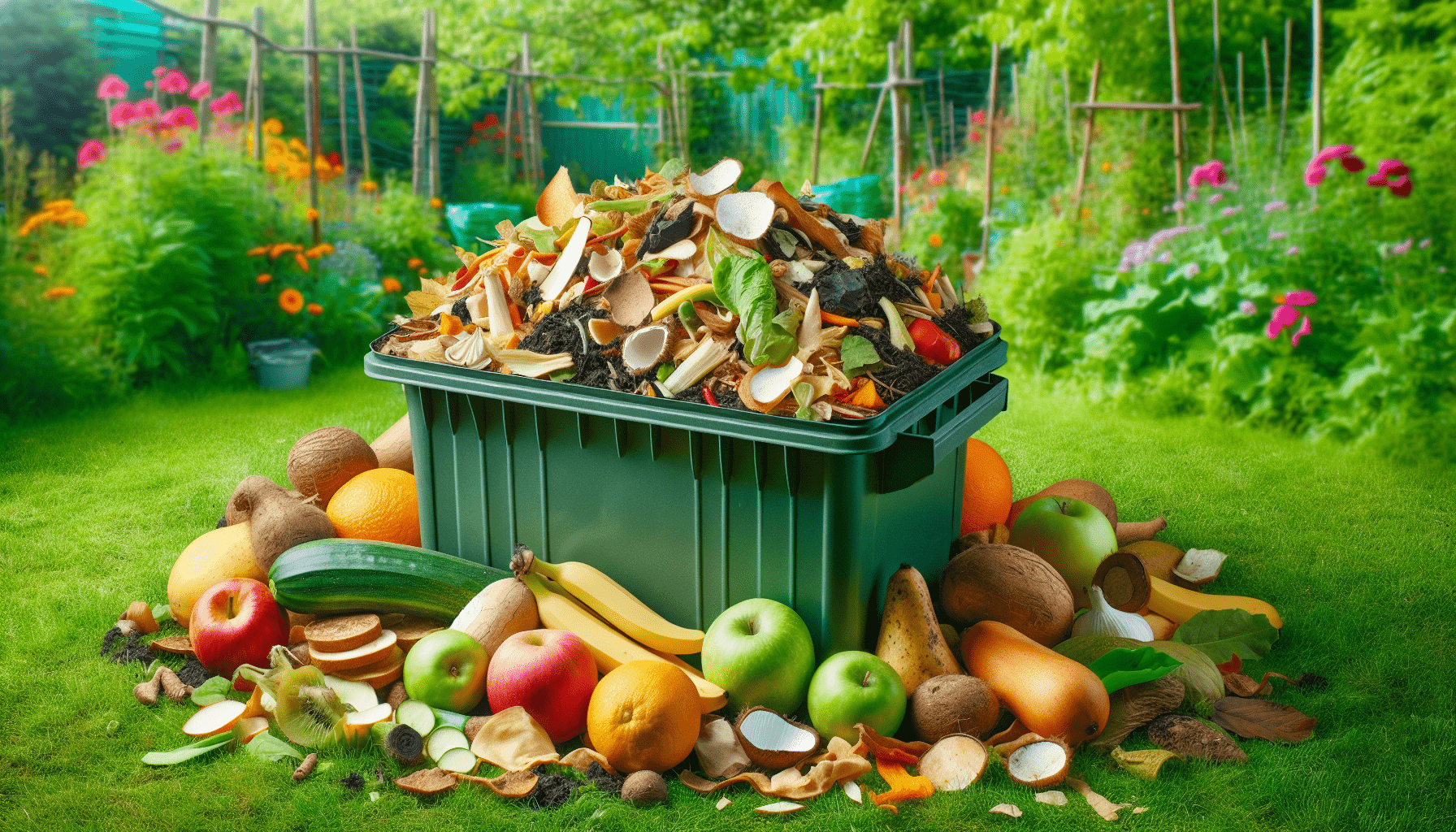
How to Use Finished Compost
Once our compost is ready, there are many ways we can put it to good use around our homes and gardens.
Garden Beds and Landscapes
We can mix compost into our garden soil to improve its structure and fertility. It can also be used as mulch around plants to conserve moisture and suppress weeds.
Potted Plants
Using compost in potting mix provides plants with essential nutrients and can help with water retention. Mixing one part compost with two parts potting soil works well for most plants.
Lawns
Compost can be spread thinly over lawns to improve soil health and grass growth. This practice, known as top-dressing, helps create a greener, healthier lawn.
Seed Starting
A mixture of compost and sand makes an excellent seed-starting medium. The nutrients in the compost support strong seedling development, setting the stage for healthy plants.
Misconceptions About Composting
Despite its many benefits, several misconceptions about composting persist. Let’s address some of these myths and set the record straight.
Composting is Time-Consuming
While composting does require some initial setup and occasional maintenance, it doesn’t have to be overly time-consuming. Simple methods like using a compost tumbler can streamline the process.
Composting Smells Bad
A well-maintained compost pile should have a pleasant earthy smell. Most odor issues arise from improper balance or poor aeration, which are easily rectified.
Composting Attracts Pests
With proper management, composting doesn’t have to attract pests. Using a secure bin and ensuring food scraps are well-integrated into the pile can deter unwanted visitors.
Composting is Only for Gardeners
Even if we don’t have a large garden, composting can still be beneficial. Vermicomposting and Bokashi composting are great options for apartment dwellers or those with limited outdoor space.
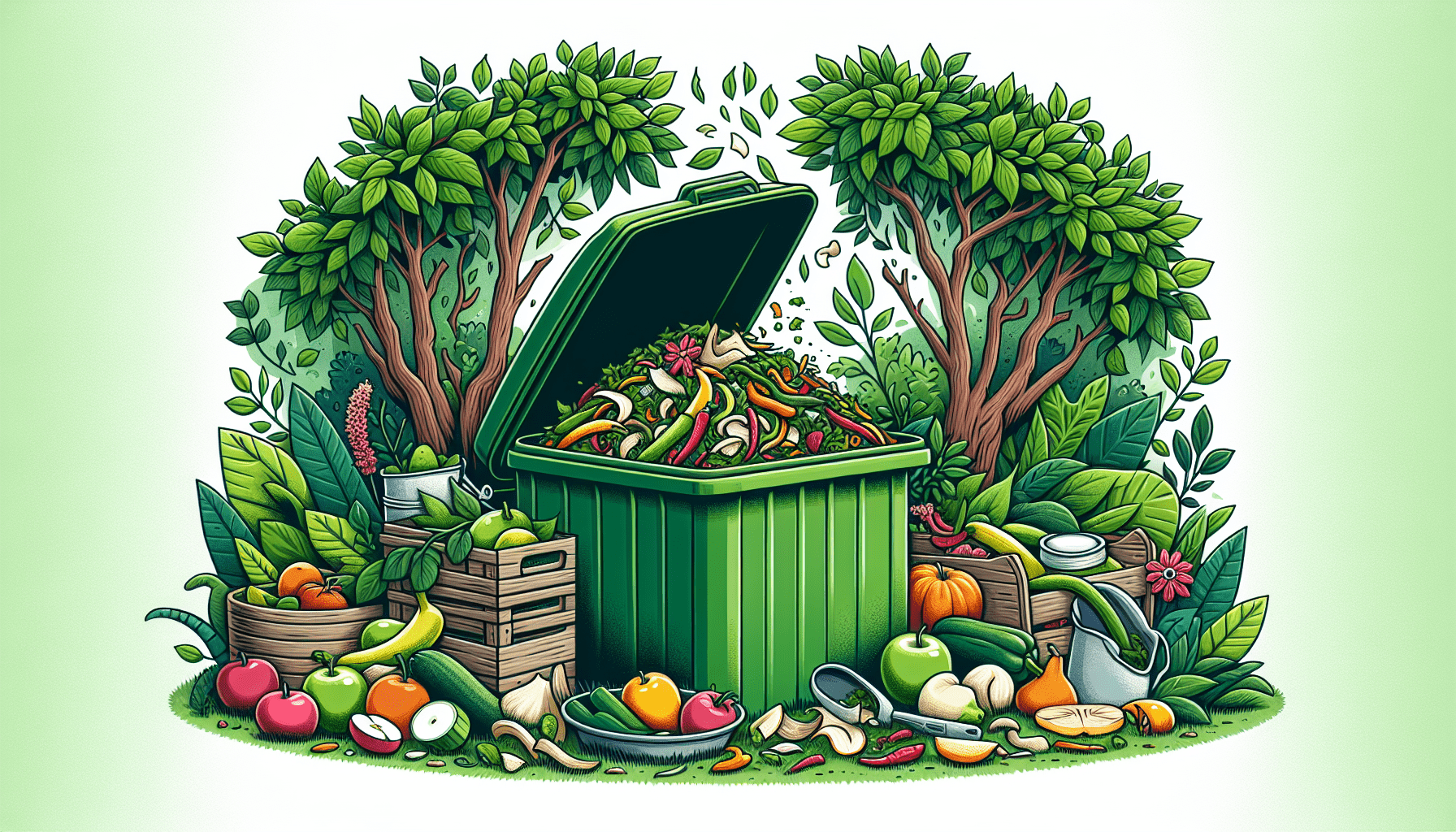
The Future of Composting
Looking to the future, composting has the potential to play an even greater role in sustainable living and waste management. Advances in composting technology, increased public awareness, and supportive policies can help expand its adoption.
Innovations in Composting Technology
Emerging technologies, like automated composters and advanced microbial additives, can make composting more accessible and efficient. These innovations can help streamline the process and reduce barriers to entry.
Policy Support and Incentives
Government policies and incentives can promote widespread composting adoption. Municipal composting programs and initiatives that encourage businesses and individuals to compost can have a significant impact.
Expanding Community Programs
Community-based composting programs can make it easier for people to participate, especially in urban areas. These programs can provide education, resources, and infrastructure to support widespread composting efforts.
Conclusion
Composting is a simple yet powerful practice that offers a myriad of benefits. It helps the environment, saves us money, enhances our health, and fosters community connections. By understanding and embracing composting, we can take meaningful steps toward a more sustainable and fulfilling lifestyle.
Are you ready to start composting? The benefits are clear, and the impact is profound. Let’s take this journey toward a greener, more sustainable future together.


